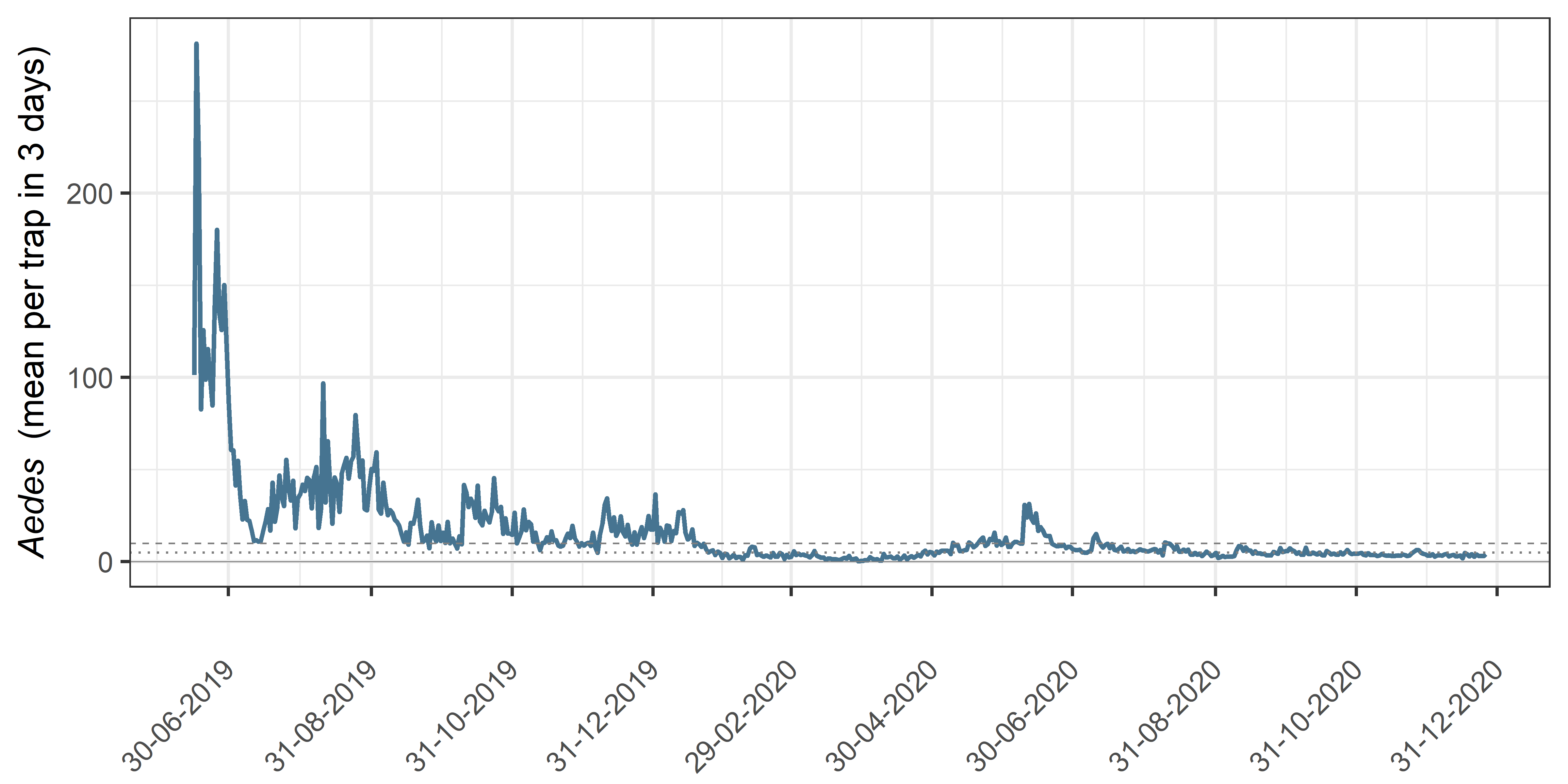- The mosquito population was nearly eliminated within one year
- Mosquito control with Biogents traps is much more efficient in comparison to chemical fogging and it also catches insecticide-resistant mosquitoes
- Halting of the use of insecticides resulted in a greater variety of the island’s flora and fauna
- The implementation of our innovative and sustainable concept reduces costs in comparison to conventional insecticide-based methods
.png?width=2752&height=1548&name=MicrosoftTeams-image%20(6).png)
On the pristine island Soneva Fushi in the Maldives, Soneva had implemented a successful concept for mosquito control by using Biogents‘ trap system. Without using chemical fogging, the mosquito population was decreased by 98% within one year.
The islands of the Maldives have a significant mosquito problem, particularly during the monsoon season. Mosquitoes are not only a real nuisance for guests in this area but also a sincere health concern because of mosquito-borne illnesses, e.g. dengue and chikungunya - although the Maldives have been malaria free since 1984.
While many resorts use chemical fogging to manage the mosquito population, Soneva Fushi decided to cooperate with Biogents to establish a highly effective and innovative alternative. The aim of this partnership between Soneva and Biogents was to bring the mosquito population on the island of Kunfunadhoo, the home of Soneva Fushi, down to zero, and to set an example for a sustainable mosquito management system without using insecticides.
One month after the Biogents traps were put into operation, a sharp decline in the number of mosquitoes trapped on the island was already observed. After about eight months, the mosquito population was almost eliminated, with constantly very low mosquito catch rates:

Before the partnership with Biogents, the mosquito population was managed by a conventional pest control company with hot fogging and mist blowing of insecticides without success. This extensive use of chemical treatment lead to a high level of resistance within the mosquito population and resulted in ineffectual treatments. The continued use of ineffective insecticides also caused significant impact on beneficial insects such as butterflies, dragon flies, bumble bees and beetles. The natural abundance of these insects was significantly reduced.
Due to the implementation of this new mosquito management system with Biogents traps, flora and fauna were able to recover. Guests as well as local residents therefore were able to experience the increase in native insects. The highly increased presence of pollinators lead to the flourishing of numerous plants and fruits, which are also used by the local restaurants. Additionally more birds visit the shores of Kunfunadhoo because of the returned abundance of fruits and insects. Even fire flies can be spotted again at night.
Five hundred mosquito traps have been placed all over Soneva Fushi. The traps come in two types: the BG-GAT trap (Gravid Aedes Trap) targets Asian tiger mosquitoes that have bitten someone and are searching for a place to lay eggs. A second trap, the BG-Mosquitaire CO2, attracts mosquitoes searching for a blood meal, by using a combination of carbon dioxide and lactic acid to make an irresistible aroma mosquitoes mistake for a human.
In addition to the use of traps, the project leaders Bart Knols (medical entomologist, PhD MBA) and Akib Jahir (Soneva’s Integrated Pest Control Manager, MSc) also educated the whole staff about mosquito breeding sites to carry out breeding site elimination. This included the reduction of the amount of stagnant water found on the island by reducing the use of tarpaulins as well as daily inspections of certain sectors to find mosquito larvaes, among other measures. Also, island clean-up days were part of the strategy. This way they could remove coconut shells and any other objects that could contain water on a regular basis.
The success of this project shows that insecticide-free innovations combined with the knowledge of the nature of mosquitoes are very efficient and overcome the problems of resistence.
The results of the study were published in a peer-reviewed scientific journal:
Jahir A, Kahamba NF, Knols TO, Jackson G, Patty NFA, Shivdasani S, Okumu FO, Knols BGJ. Mass Trapping and Larval Source Management for Mosquito Elimination on Small Maldivian Islands. Insects 2022, 13, 805. https://doi.org/10.3390/insects13090805
A poster about the study was presented at the annual meeting of the European Mosquito Control Association (EMCA) in 2022: Insecticide-free Mosquito Elimination on Small Maldivian Islands







